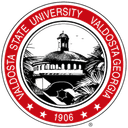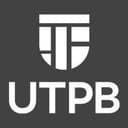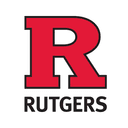Postdoctoral Fellowship 2026-2027: Habitat
The Fox Center for Humanistic Inquiry is pleased to open applications for our one-year postdoctoral research fellowships. We invite applications from candidates from any humanistic discipline who are eager to be part of a community of scholars engaged in innovative and interdisciplinary research and conversations around our 2026-27 theme, habitat.
The Fox Center will appoint up to five postdoctoral fellows for the academic year 2025-26. Up to three positions are open field and up to two are in the field of poetics.
Our postdoctoral fellowships in poetics reflect the importance of Emory’s Raymond Danowski Poetry Library (part of the Stuart A. Rose Manuscripts, Archives and Rare Book Library) as a center for research in poetry. We take a broad view of poetics as encompassing the study of form and/or practice in any genre.
All postdoctoral fellows participate in a weekly interdisciplinary seminar, presenting their research at one of these meetings, and teach one undergraduate seminar of their own design in the College of Arts and Sciences. They also collaborate in the planning of Fox Center programming pertaining to the theme and engage in the Center’s events.
Fellowships are for a period of ten months, August 1, 2026 – May 31, 2027, and include a stipend of $60,000, a research budget of $2,000, and a one-time additional payment of $2,000 to defray the costs associated with moving to Atlanta. Fellows are eligible for a wide range of competitive benefits, including dental and vision care. All Postdoctoral Fellows are required to be in residence for the term of the fellowship.
The application deadline for applicants to submit their materials is December 8, 2025 at 11.59 PM ET. The deadline for receipt of letters of recommendation is December 12, 2024 at 11.59 PM ET.
habitat
The concept of habitat connotes both a physical place for living and the necessary conditions for thriving. Heidegger famously argued that to be human is to dwell. But what does it mean to dwell amidst environmental precarity, political displacement, and technological transformation? How have human relationships with the places we inhabit been experienced, negotiated, and imagined across different periods and geographies? How have we made sense of our surroundings and, in turn, formed our notions of home?
Human activity has long left its marks on our world—from the deforestation of medieval Europe to the sweeping planetary impacts of industrialization. At the same time, floods, wildfires, and earthquakes remind us that we are subject to forces beyond our control. As dwellers on Earth, we live not only among built structures and political borders, but also within multispecies and geological systems whose scales of time and complexity often exceed our comprehension. Poet Joy Harjo implores us to “remember the earth whose skin you are.” Yet while we are imbricated in these systems, we are also storytellers and meaning-makers, describing, contesting, and reimagining the conditions of our existence.
We anticipate that our Fellows will approach the concept of habitat through diverse lenses on the human experience, including, but not limited to, environmental humanities, science and technology studies, Indigenous and postcolonial studies, and urban studies. Projects may examine moments of rupture and reconfiguration, ecological interdependence, forced migration, multispecies coexistence, or the politics of shelter and space in industrial and post-industrial environments. This year’s theme invites inquiry into how we dwell—and what it might mean to dwell well—in a shared and uncertain world.
Qualifications
All postdoctoral fellows must hold a PhD (or its international equivalent, such as the DPhil). Applicants may not have held a doctorate for more than five years. Preference will be given to applicants who have not held prior postdoctoral fellowships. Applicants applying without a degree in hand should receive it by August 15, 2026. Scholars from outside the United States are appointed under either the J-1 visa (Research Scholar status) or F-1 OPT (Optional Practical Training), depending on their circumstances. The Fox Center reserves the right to cancel awards if the recipient is unable to meet these conditions of completion and visa status.
Application Instructions
To complete the online application, you will need to provide the following:
- Cover letter (2 pages maximum)
- Project description (1000 words maximum, including a timeline for the fellowship year)
- Title and course description for your proposed undergraduate seminar
- Curriculum vitae
- E-mail information for three recommenders
Please note that as part of the University’s Interfolio system, each applicant is required to complete the Equal Employment Opportunity form. The Fox Center will not have access to the completed form.
Specific Instructions
Project description: Applicants should describe the specific writing and research planned for the period of the fellowship and include a detailed timeline. They should describe their engagement with the annual theme and how they would benefit from the interdisciplinary environment. Please remember that fellows are expected to be in residence at the Center full time.
Course description: During the spring of their fellowship year, postdoctoral fellows are expected to offer an interdisciplinary undergraduate seminar on a subject of their choosing, which will be offered in the College of Arts and Sciences through the Institute of the Liberal Arts. Please be prepared to enter your course title and description (c. 250 words) when prompted.
Recommendation letters: Recommenders are automatically notified by Interfolio to upload their letters to your application file. Be sure to leave enough time so that your letters of recommendation are submitted by the deadline.
It is the applicant’s responsibility to ensure that all required documents are uploaded to Interfolio and submitted. Incomplete applications cannot be considered after the deadline.
Acceptance Procedures
Upon notification of an FCHI Postdoctoral Fellowship Award, recipients must agree to:
- conduct writing and research in residence full-time at the FCHI for the academic year;
- take full responsibility for contributing to and maintaining an environment conducive to academic research while at the Center;
- submit a report of progress to the Director at the end of the Fellowship;
- acknowledge the FCHI in all work resulting from research and writing done during the Fellowship;
- teach an undergraduate course in the spring term of the Fellowship year;
- attend all Fellows’ seminars and thematic programming sponsored by the FCHI during their term of residence;
- immediately notify the FCHI of any other support or of any conflicts with the restrictions and conditions of this Fellowship Program.
Whoops! This job is not yet sponsored…
Or, view more options below
View full job details
See the complete job description, requirements, and application process
Express interest in this position
Let AcademicJobs.com know you're interested in Postdoctoral Fellowship 2026-2027: Habitat
Get similar job alerts
Receive notifications when similar positions become available

















